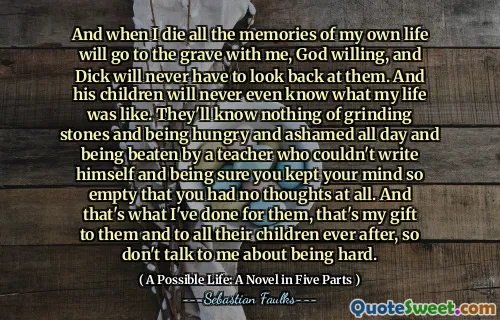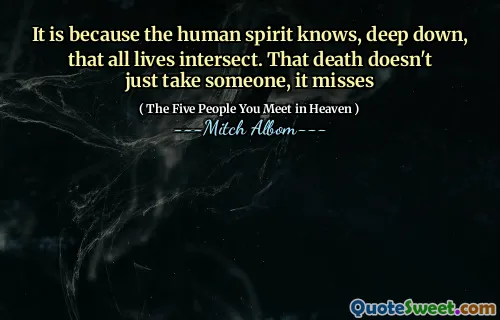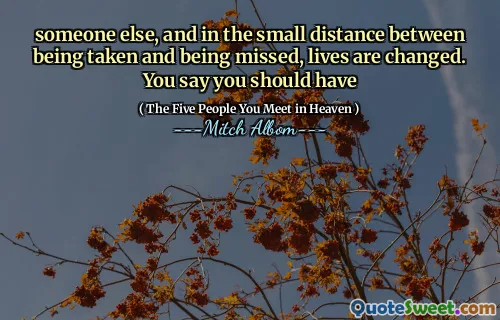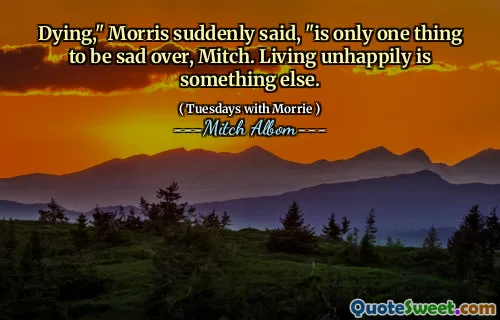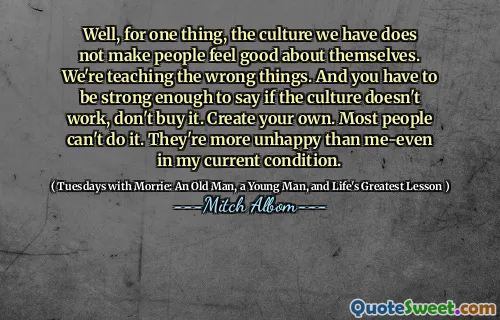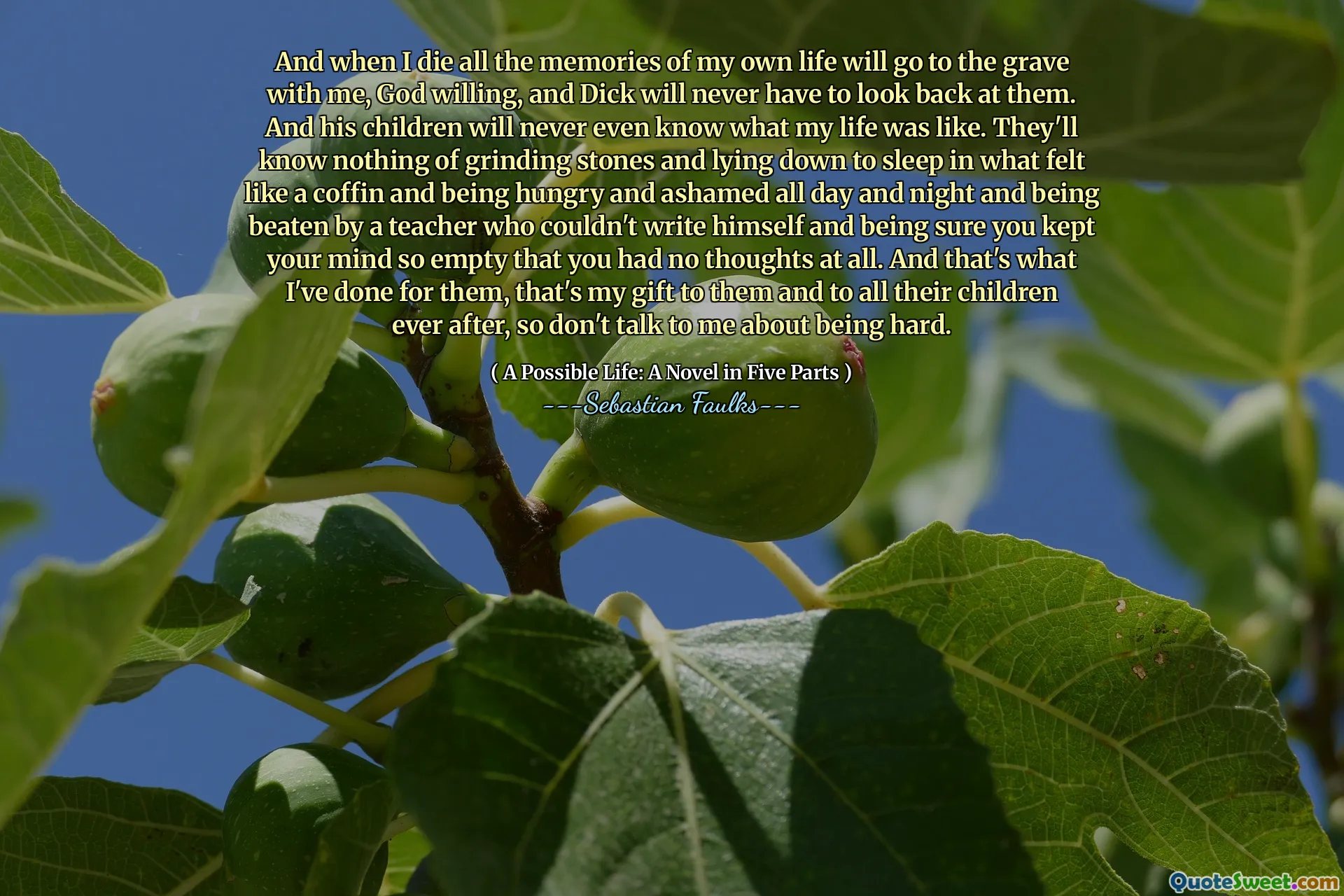
当我死去时,我自己一生的所有记忆都会和我一起去坟墓,上帝愿意,迪克永远不必回头看他们。他的孩子们甚至永远不知道我的生活。他们一无所知,磨碎石头,躺着睡觉,在感觉像棺材,整夜都饿和羞愧,并被一位无法写下自己的老师殴打,并确保您保持自己的思想如此空虚,以至于您根本没有想法。这就是我为他们所做的,这是我给他们和所有孩子的礼物,所以不要和我谈论要努力。
(And when I die all the memories of my own life will go to the grave with me, God willing, and Dick will never have to look back at them. And his children will never even know what my life was like. They'll know nothing of grinding stones and lying down to sleep in what felt like a coffin and being hungry and ashamed all day and night and being beaten by a teacher who couldn't write himself and being sure you kept your mind so empty that you had no thoughts at all. And that's what I've done for them, that's my gift to them and to all their children ever after, so don't talk to me about being hard.)
在“可能的生活”中,演讲者反映了死亡的必然性和个人记忆的短暂本质。他们对自己的斗争和痛苦的经历表示渴望,以使其对后代隐藏。演讲者确定他们的痛苦包括饥饿,羞耻感和误导性教育者的苛刻纪律,不会损害那些追随他们的人的生活。这种无私的保护行为被描绘成他们的遗产,是给子孙后代的礼物。
演讲者强调保持艰辛的秘密重点是个人历史负担的更广泛的主题。他们拒绝这样的观念,即这些审判定义了力量,而是选择优先考虑亲人的情感健康。他们的思考揭示了一种深切的牺牲感和强烈的渴望,渴望将孩子免受过去的伤痕,最终使他们有自由地伪造自己的生活,而不会因继承的痛苦而束缚自己的生活。


